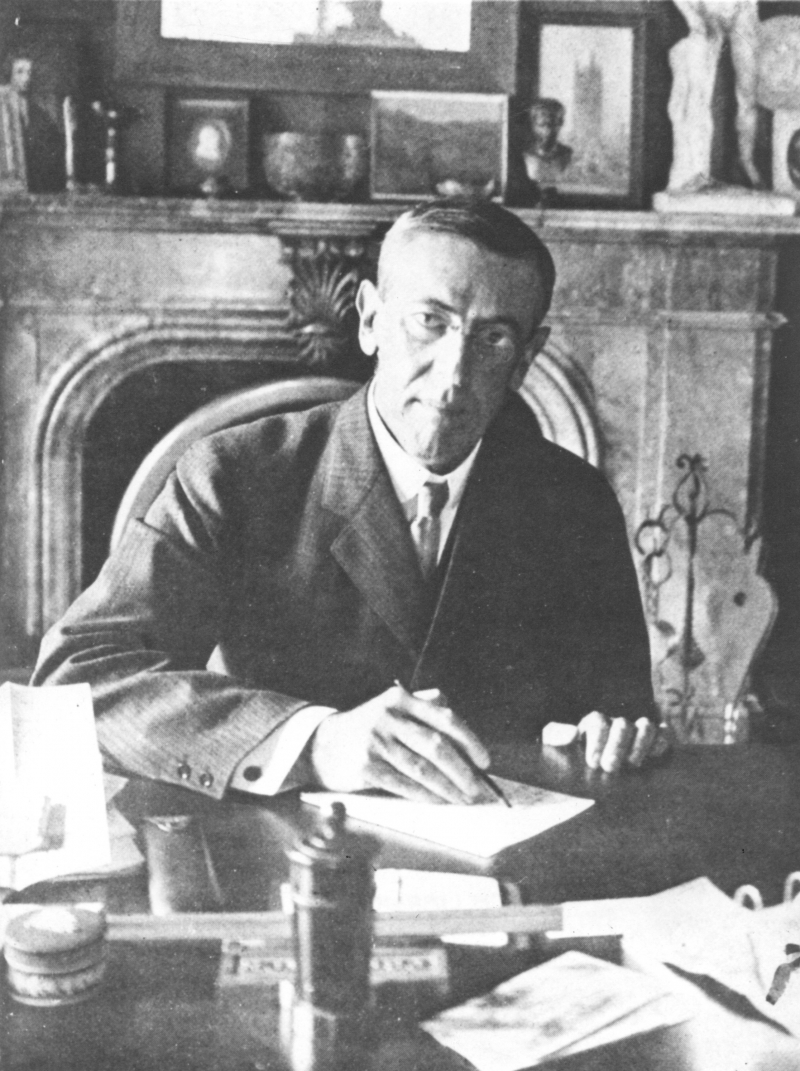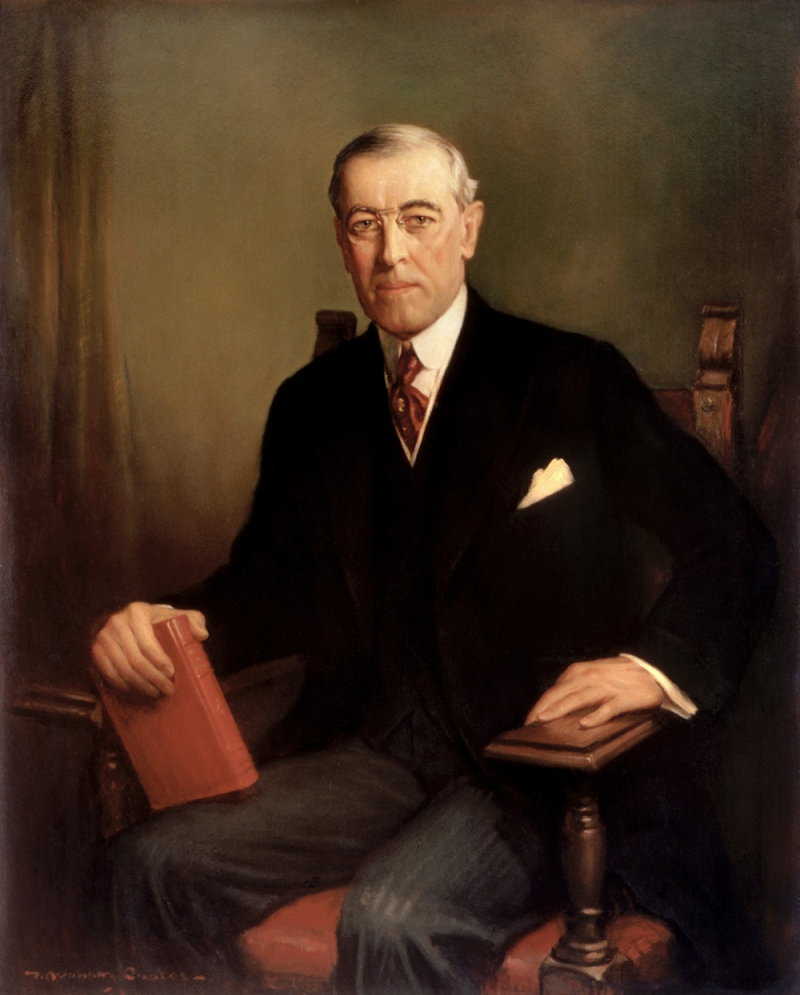Woodrow Wilson became governor of New Jersey in 1910
It is a fact that Woodrow Wilson became governor of New Jersey in 1910. By January 1910, Wilson had attracted the attention of New Jersey Democratic Party heavyweights James Smith Jr. and George Brinton McClellan Harvey as probable contenders in the forthcoming governor contest. After losing the previous five gubernatorial elections, New Jersey Democratic leaders opted to back Wilson, an unproven and unusual candidate. Party officials hoped that Wilson's scholarly credentials would make him a perfect advocate against trust and corruption, but they also hoped that his lack of government experience would make him easily swayed.
The leaders marshaled their forces at the state party convention and secured Wilson's nomination. On October 20, he presented his letter of resignation to Princeton. Wilson's campaign was built around his promise to be independent of party leaders. He rapidly abandoned his professorial demeanor in favor of more assertive speechmaking, presenting himself as a full-fledged progressive. Though Republican William Howard Taft won New Jersey by more than 82,000 votes in the 1908 presidential election, Wilson easily defeated Republican gubernatorial opponent Vivian M. Lewis by more than 65,000 votes. In the 1910 elections, Democrats also took control of the general assembly, however, the state senate remained in Republican hands. During his two years as governor, he defied the political establishment and implemented progressive changes such as a Direct Primary, safer working conditions, the suppression of political corruption, and the revival of the state public utility commission.










